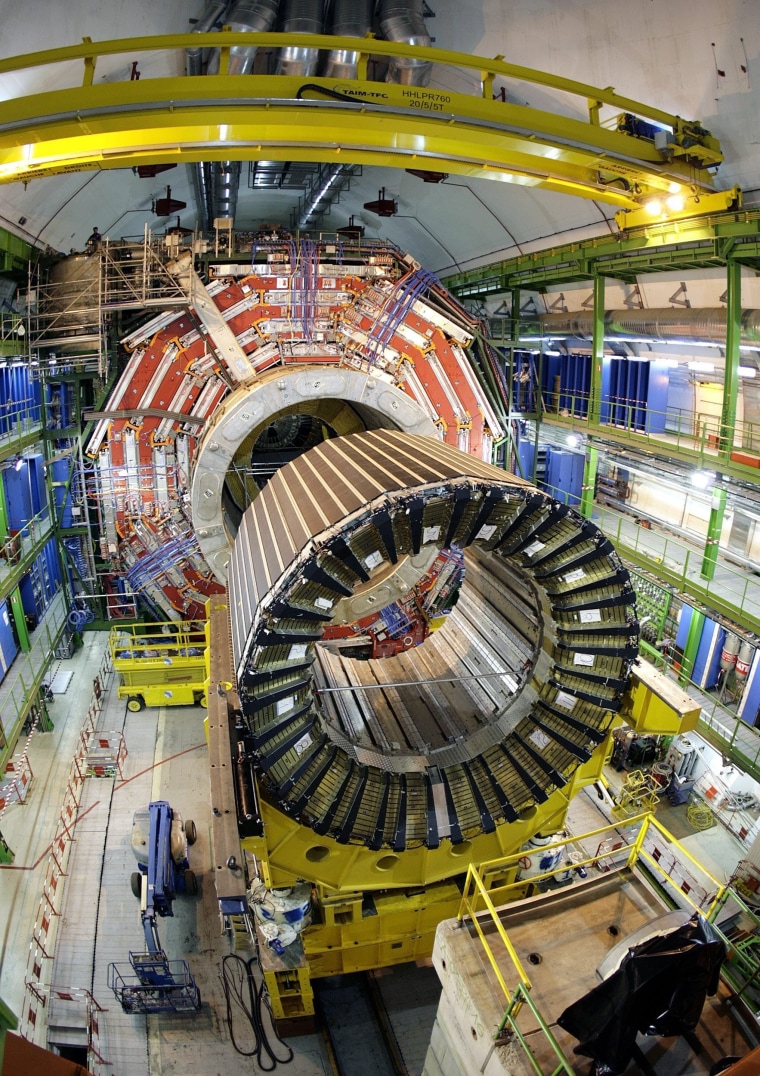Scientists are in the process of restarting a giant particle collider built to reproduce the conditions of the big bang, Europe’s CERN physics research center said Friday.
After a year's delay, the scientists hope to have beams of protons circulating all the way through the Large Hadron Collider’s 17-mile-wide (27-kilometer-wide) underground ring in both directions by early Saturday, and then accelerate them this weekend, CERN spokesman James Gillies said.
"At the moment they're putting beams down in the Large Hadron Collider, and as the night goes on they'll take the beams through and start circulating them," he told Reuters. CERN reported that beams were fully circulating in the clockwise direction, and that preparations were being made to send beams counterclockwise as well.
The experiment will not be properly under way until January when the LHC is operating at a higher level, Gillies said.
Technical problems forced CERN to shut down the $10 billion collider just nine days after it was started for the first time in September 2008.
The problem was a faulty splice in the super-conducting cable connecting two cooling magnets in the underground ring, which smashes particles at a temperature of just above absolute zero to re-create conditions believed to exist at the start of the universe 13.7 billion years ago.
As the particles smash into each other at nearly the speed of light — once the collider is operating at full throttle, which will take several weeks — they will explode in a burst of energy which scientists will monitor for new or previously unseen particles which they predict could help explain the nature of mass and the origins of the universe.
CERN said last year's accident never posed any danger. The Geneva-based institution has had to rebuff suggestions that the experiment would create millions of black holes that would suck in the Earth.
This report includes information from Reuters and msnbc.com.
